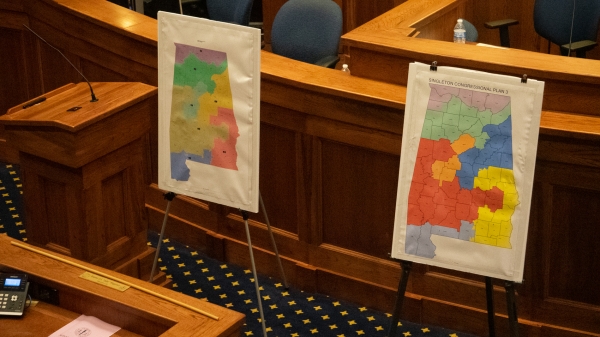A federal court in Birmingham on Tuesday will hear arguments on which of three proposed congressional voting maps should be implemented for the 2024 election cycle.
The court-appointed special master, Richard Allen, submitted three maps to the court last week – a day before the U.S. Supreme Court declined to issue a stay in the case, allowing the court-ordered redrawing of the maps to move forward – attempting to satisfy the High Court’s directive that Alabama lawmakers, who openly defied the directive, create two congressional voting districts with Black voting age populations (BVAP) at or near 50 percent.
In response, pretty much everyone involved with the case filed objections to Allen’s maps.
The plaintiffs in the case, Allen v. Milligan, believe the maps mostly do not satisfy the Supreme Court’s directive and note that only one of Allen’s maps actually creates two majority-Black voting districts. Allen’s Plan 1 creates a 7th district with 52.8 percent BVAP and a new 2nd district at 50.1 percent.
The other two Allen plans each have one majority-Black district and a 2nd District that gets close to 50 percent.
In analyses of the new districts, based on previous elections, all three maps would make it more likely than not that Black voters could elect a candidate of their choosing, according to information submitted to the court with the proposed maps.
The plaintiffs dispute that fact in new court filings and note that in the 2022 election cycle the Black-preferred candidate in the new 2nd District would have lost four of five elections.
Also unhappy with the proposed maps – albeit for vastly different reasons – are the Alabama Attorney General’s office and Alabama Secretary of State Wes Allen. In a filing, Allen’s attorneys argue that results from the 2022 elections should be discounted because Democratic candidates were historically underfunded by the party and contributed to low voter turnout among Black voters.
Allen’s filing came in response to an objection to the maps filed by the Alabama Democratic Conference, the Black caucus of the Alabama Democratic Party. In their objection, ADC members argued that the 2022 election results proved that white voters could – and might be expected to – join together to defeat any Black-preferred candidate.
Most legal experts expect the court to move quickly in making a decision and pushing forward with next steps in the redrawing process. New maps must be in place before early November.




















































